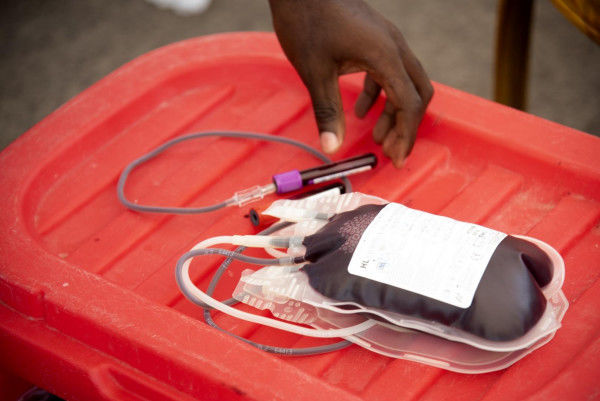News & Blog
What is Diploma in Blood Bank Technology?
Diploma in Blood Bank technology is a degree course detailing on blood banking process. Immunology, genetics, blood groups, blood transfusion complications, collection and storage of blood and components, general administration, personnel administration, and automated data processing are all topics that blood bank specialists are well-versed in the field. Diploma course in Blood bank technology makes the students specialized to work in various settings, including private hospital blood banks, community blood banks, transfusion services, university-affiliated blood banks, and independent laboratories, among others.
Blood bank technology professionals perform all blood bank operations, from simple testing to the most complex procedures. Specialists in blood banking technology operate in blood donation centres, transfusion services, reference laboratories, and research institutions. Instead of performing routine blood tests, blood bank technology professionals are trained to perform speciality tests such as immunohematology. Transplant or transfusion therapy frequently requires the assistance of a blood bank professional.
As phlebotomists, blood bank workers receive professional training. They are educated to work with a variety of patients in various situations, such as collecting and identifying blood types in patients. Under the supervision of clinical laboratory technologists, they also analyse the obtained blood and collect blood for the blood centre.
Eligibility Criteria for Diploma in Blood Bank Technology
- Candidates must pass Higher Secondary with a minimum of 50% in English, Physics, Chemistry, and Biology and a strong NEET score. As of December 31st, the candidate must be 17 years old. The upper age limit is 35 years old.
- Relaxation: OBC/SC/ST candidates will receive a 5% reduction in the requisite aggregate in Higher Secondary Examinations for this course.
Benefits of Diploma in Blood Bank Technology
After the students complete their course of Diploma in Blood Bank technology, they gain knowledge and can work on multiple things like:
- Antigen testing, compatibility testing, and antibody identification
- Candidates are trained in investigating abnormalities such as infant hemolytic illnesses, hemolytic anaemias, and transfusion responses.
- Candidates support physicians with transfusion therapy for patients with (blood clotting disorders) coagulopathies or candidates for organ and cellular transplantation/therapy.
- Selecting donors, collecting blood, typing blood, and molecular testing are all part of the blood collection and processing process.
- They guarantee patient safety, viral marker testing is performed.
- Blood is tested for viruses that could be spread during a blood transfusion.
- Investigating the body's adverse reactions to blood transfusions
- Supervising blood component collection, separation, delivery, and storage
- In blood transfusion therapy, they assist physicians and nurses.
Future Scopes of Diploma in Blood Bank Technology
Candidates interested in pursuing higher studies can enrol at the master's level after completing their Diploma in blood bank technology courses.
- If an aspirant wants to work as a Blood Bank Technician and earn a good wage, they must have a substantial qualification. Candidates can earn their master's degree in a programme that will prepare them to work as blood bank technicians.
- It is beneficial to get some internship experience when studying for a postgraduate degree. Internships will improve the abilities and experience, allowing candidates to land a job more quickly.
Career and Job Opportunities after Diploma in Blood Bank Technology
A candidate can apply for a variety of blood bank technician jobs, including:
- Private ambulance services providers, municipal EMS sectors, governments, hospitals, and fire departments typically hire emergency medical technicians (EMTs)., Blood Bank Administrators, Blood bank RN, Lab Technicians, Remote blood bank technologist, operative blood management technologist, Medical Lab Technician, Surveyor - Laboratory, Home-based clinical testing, Medical Technologist, Pharmacy Technician, Senior, or a Blood Bank Partnerships Analyst.
- The top employers for these professionals are M.P. Birla Hospital, Max Hospitals, Apollo Hospitals, Seven Hills Hospitals, Lata Mangeshkar Medical Foundation, and others.
- The average income after completing a Diploma in Blood Bank Technology is between INR 5Lakhs to 9 Lakhs depending on their proficiency and experience.
Fees Structure & Duration of Diploma in Blood Bank Technology
The average fee charged for the Diploma in Blood Bank Technology is between 50,000 to 1,00,000. Duration of this course is 2 years.
Syllabus of Diploma in Blood Bank Technology
1 Year OR 1st & 2nd Semester Syllabus of Diploma in Blood Bank Technology
|
S.no |
Subjects |
|
1 |
Human Anatomy & Physiology |
|
2 |
General Lab Techniques ,Biochemistry, Histopathology |
|
3 |
Microbiology & serology & Clinical pathology |
|
4 |
Rural Marketing Management |
|
5 |
Blood Banking |
2nd Year OR 3rd & 4th Semester Syllabus of Diploma in Blood Bank Technology
|
S.No |
Subjects |
|
1 |
Applied Anatomy & Physiology |
|
2 |
Demonstration of models, Specimens & Skeleton |
|
3 |
Training |
|
4 |
Internship |
*********************************************************************************************************
For More Information.............
National Institute of Health Science & Research
Phone: +91-161-5013232, +91-161-2916284
Mobile: +91-92176-03232, +91-93168-50388.
Email: nihsr_2001@yahoo.com
24/7 Helpline No. 78726-78726











